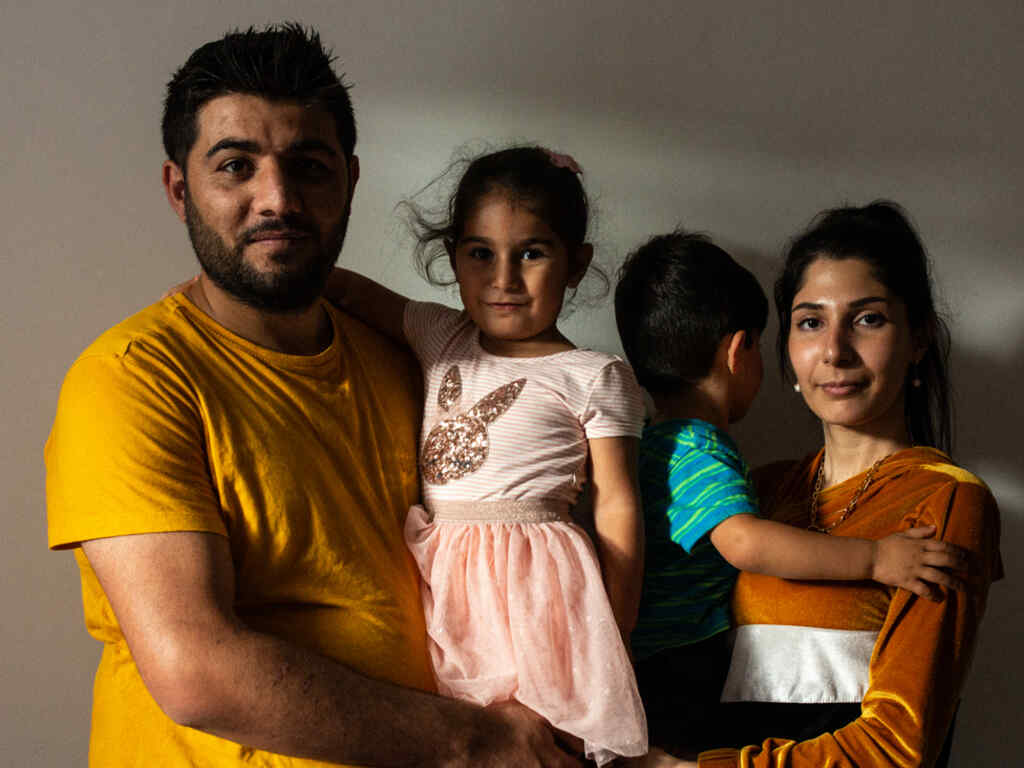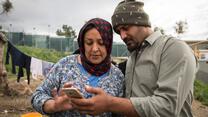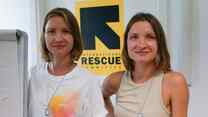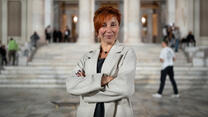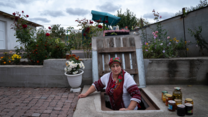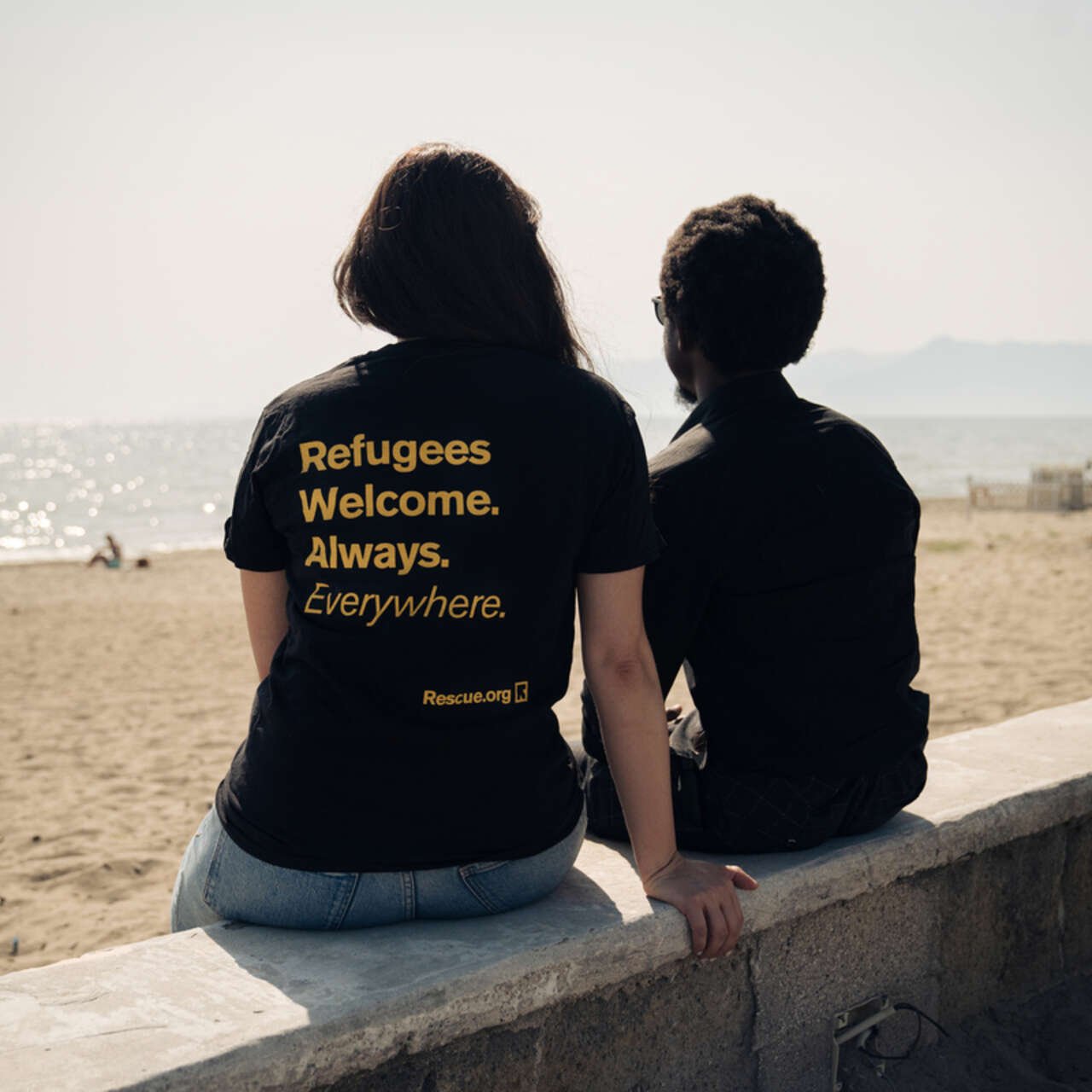
Ten years ago, migration made headlines across Europe as millions of people arrived in search of safety—a number that, in a single year, has only been surpassed by the displacement caused by the war in Ukraine.
Conflict, climate change and economic instability continue to force millions of people globally—including children—to risk everything in search of safety. Many arrive on the shores of Europe every day, and while it once welcomed people seeking safety, solidarity is waning.
Still, many refugees have overcome significant barriers to rebuild their lives. Since the IRC's first response in Greece in 2015, we have worked across Europe to support refugees and advocate for fairer, more humane policies.
Here are the stories of five individuals we’ve supported over the years, who have gone on to become a crucial part of their new communities and are giving back in countless ways. Their experiences demonstrate what is possible when refugees are supported.
Maryam from Afghanistan
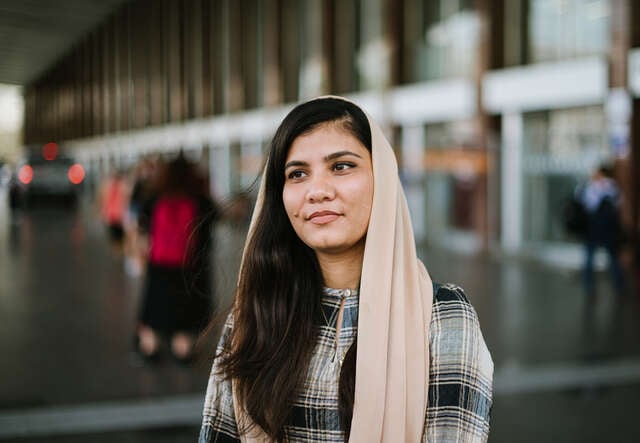
When the Taliban seized control in Afghanistan in August 2021, journalist Maryam was forced to abandon the successful career she had built. “I left everything in my country,” she recalls. “I took just a pair of clothes and my computer.”
Maryam and her family were evacuated to Italy through the government’s evacuation program. But starting over was far from easy. Language barriers and the lack of clear information about migration procedures left her struggling to adapt.
Maryam found support through the IRC’s Refugee.Info Italy platform. Accessible in her own language, the site provided crucial guidance on her rights and the asylum process. For Maryam, it was a lifeline.
She later joined the Refugee.Info team as a social media moderator. In her role, she responds to messages, translates content, and helps asylum seekers access vital resources. She also joins outreach teams in Rome as they provide a lifeline to people on the move seeking to start anew in Italy.
Maryam takes immense pride in her work, knowing the huge impact of both informational and emotional support. “Migrants just want to feel understood,” she says. “They want someone to hear them in their own language to understand them. It’s a kind of therapy.”
Maryam’s voice now helps others rebuild their lives, just as she did.
Abubakar from Nigeria
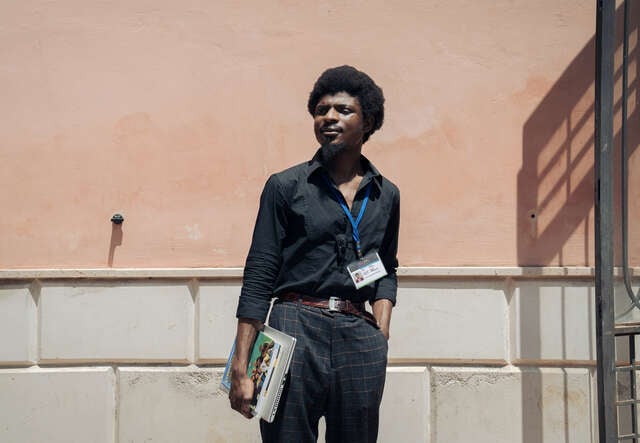
When violence forced Abubakar to flee Nigeria in 2014, he took his school certificate with him. Securing a higher education was vital to him and he wanted proof of his studies.
The document got wet as he traveled on an overcrowded boat from Libya to Italy and still bears the stain today. “Whenever I see it, the history comes back. It reminds me of the journey,” Abubakar explains.
For a long time, university felt like a distant dream as Abubakar faced isolation, language barriers, and a lack of access to information. But he persevered, learning Italian and connecting with local communities, which helped him integrate in his new town.
A turning point came when he discovered IRC’s Refugee.Info platform, and with its support Abubakar secured a scholarship to the University of Turin, graduating in 2024.
Abubakar now works at a reception center, helping other asylum seekers learn Italian and navigate the complex asylum system. He dreams of becoming a lawyer to continue advocating for refugee and migrant rights. “I started from somewhere, here I am, and I know where I am heading to,” he says. “Being a refugee or being a migrant is not a limit to what you want to achieve.”
Florent from Cameroon
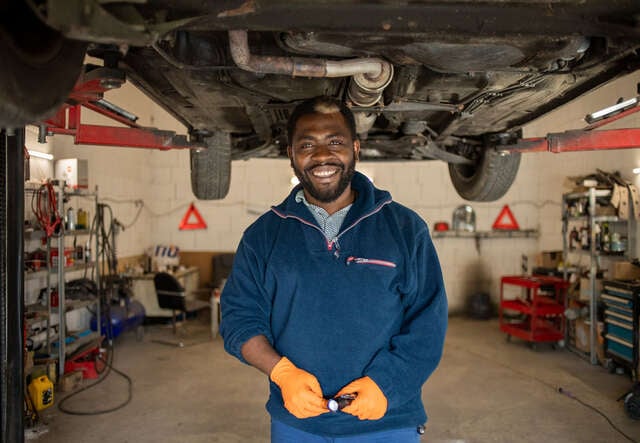
When Florent stepped off the train in Halle (Saale) three years ago, Germany felt both full of promise and impossibly distant. Back home in Cameroon, he had worked as a car mechanic and hoped to find work in the same field. But even as his German improved, he faced rejection after rejection, leaving him discouraged.
Things shifted when he found the IRC’s DABEI project, which focuses on the professional integration of refugees in Germany. That’s where he met Elias, a job coach who helped him through each step of the process. After several months, Florent secured a training opportunity as a car mechatronic at a local company.
“I would always say to a company: Give people a chance, no matter where they come from,” Florent says. To help others find the same success he did, Florent spends time helping fellow African refugees with bureaucracy and translations.
In the future he dreams of opening his own car workshop, a place where people from different backgrounds work side by side.
Olena from Ukraine
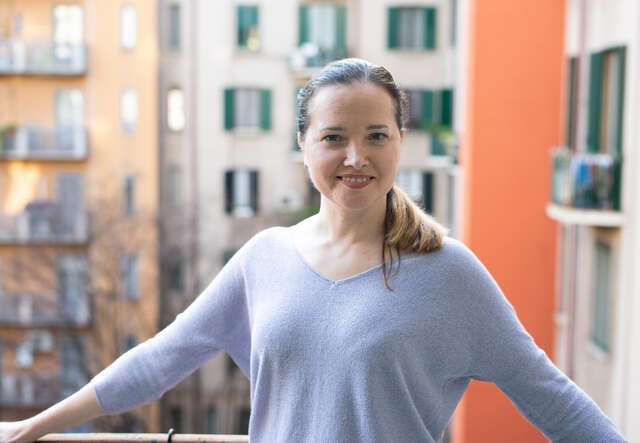
Olena fled Ukraine with her 12-year-old daughter after the full-scale war began, seeking safety in Italy where her sister lived. Initially expecting a short stay, she soon realized they would need to rebuild their lives in a new country.
“You realize that you need to move on,” she explains. “You need to integrate, learn the language, take care of the child and take care of yourself, in order to ensure that my child's life is in no way different from other children.”
Through the IRC Women’s Center in Milan, Olena received help with legal documentation, school enrollment for her daughter and integration support. Over time, she secured work at a large hotel in Milan, where she now holds multiple roles.
Despite the difficulties of adapting to a new culture and being separated from loved ones in Ukraine, Olena finds strength in her daily routine and the kindness of those around her.
“Just keep moving forward,” says Olena. “Why? Because I have a child by my side. I can't be sad, I can't stop. A child – that's what keeps me moving forward.”
Moussa from Côte d'Ivoire
“What I want people to understand is: They could also become refugees or migrants tomorrow. If they understand that, they’ll have a different view and a different approach toward people who come seeking asylum and protection.”
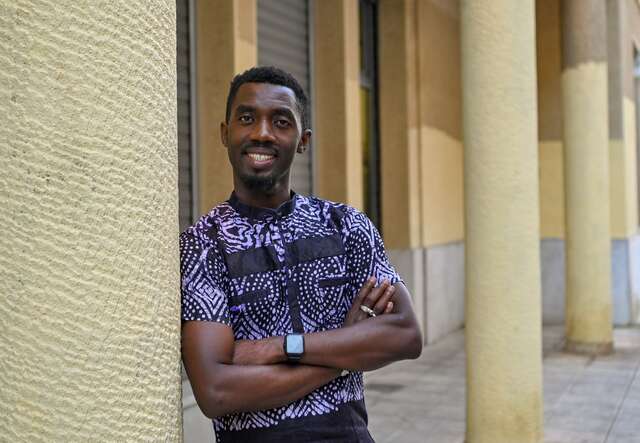
Born in Sinfra, Ivory Coast, Moussa was a successful entrepreneur, owning a taxi and an electronics store. However, in 2010, post-election violence and conflict forced him to leave his homeland. Despite very difficult conditions, he managed to travel from Ivory Coast to Istanbul, and then, crossing the river into Greece.
Upon his arrival, Moussa was detained for seven months before being released with legal support. After this traumatic experience, he faced frequent police checks in Athens, despite possessing the necessary documents.
But Moussa has always been committed to helping others, and seeing many other refugees and migrants facing the same difficulties as he did, he was determined to support them. "I started organizing events, sharing information, and supporting people," Moussa recalls. "I have always wanted to defend people's rights and shape a better future for the next generation."
We first met Moussa in 2018, when he was working on his first business idea with the IRC and Citi Foundation. Over time, Moussa became a recognized community organizer and human rights activist in Greece, representing refugees and migrants at the national and European levels. He advocates for inclusion, fair policies, and community-led initiatives driven by refugees and migrants.
Moussa also opened his clothing store in 2020, which connects cultures through African fabrics and Afro-European creations. His work combines entrepreneurship and advocacy to support his community and society at large.
How is the IRC supporting refugees in Europe and around the world?
Every year, the IRC supports thousands of asylum seekers with livelihood programs aimed at improving their well-being, employability and entrepreneurship. Over the past decade, we have seen firsthand how refugees have strived to rebuild their lives against the odds, proving what is possible when refugees are embraced by their new communities.
Donate now to support the IRC's life-changing work in Europe and worldwide. We are on the frontlines providing critical aid to crisis-affected people in more than 40 countries, including places on the 2025 Emergency Watchlist.
More from the IRC
Learn more about how you can help the IRC continue our mission.
Get connected: Follow our Instagram, LinkedIn, Facebook, and Bluesky accounts.
Stay up to date with the latest from the IRC.
